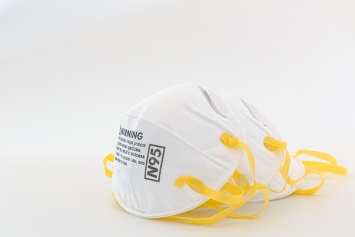The Occupational Safety and Health Administration (OSHA) suggested that employers consider using filtering facepiece respirators certified under other countries’ standards in light of shortages of N95 respirators. The agency issued interim enforcement guidance to regional administrators and state-run occupational safety and health programs temporarily permitting their use.
OSHA advised employers to consider using respirators certified under the following countries’ national standards:
- Australia: AS/NZS 1716:2012
- Brazil: ABNT/NBR 13694:1996; ABNT/NBR 13697:1996; and ABNT/NBR 13698:2011
- People’s Republic of China: GB 2626-2006; and GB 2626-2019
- European Union: EN 140-1999; EN 143-2000; and EN 149-2001
- Japan: JMHLW-2000
- Republic of Korea: KMOEL-2014-46; and KMOEL-2017-64
- Mexico: NOM-116-2009
State and federal officials have reported shortages of N95 respirators due to the ongoing COVID-19 pandemic. COVID-19 is a respiratory disease caused by the SARS-CoV-2 virus, first identified in Wuhan City, China, in December 2019.
Employers still must comply with OSHA’s respiratory protection standard if they are required to use or permit voluntary use of respirators. The standard includes medical evaluation, fit testing, cleaning and maintenance, and training requirements. Employers may use filtering facepiece respirators certified under other countries’ standards if devices certified by the National Institute for Occupational Safety and Health (NIOSH) are not available. Employers alternatively may use NIOSH-certified respirators that have exceeded their manufacturers’ stated shelf life.
All employers also should reassess their engineering controls, work practices, and administrative controls to identify any changes they can make to decrease the need for N95 respirators, according to OSHA’s enforcement guidance. Such steps might include increasing the use of wet methods or portable local exhaust systems, moving operations outdoors, or temporarily suspending certain nonessential operations.
Healthcare Facility Considerations
The agency suggested healthcare employers reserve some NIOSH- or foreign-certified filtering facepieces or better respirators for use by healthcare workers expected to perform surgical or aerosol-generating procedures on patients infected with, or potentially infected with, SARS-CoV-2.
When such procedures must be performed, OSHA cautioned that:
- Respirators certified exclusively in accordance with standards of the People’s Republic of China and manufactured by companies that are not NIOSH approval holders must not be used unless the only feasible alternative is a face mask or an improvised nose/mouth cover; and
- Employers should prioritize the use of N95 respirators by activity type—when healthcare workers perform or are present for aerosol-generating procedures or procedures during which respiratory secretions are likely to be poorly controlled, they should use respirators (including N95; other filtering respirators; nondisposable, elastomeric respirators; and powered, air-purifying respirators (PAPRs)) that are still within their manufacturer’s recommended shelf life, if available, before using respirators that are beyond their manufacturer’s recommended shelf life.
The agency instructed inspectors to exercise discretion in citing employers, taking employer efforts into consideration. Such efforts would include using engineering and administrative controls and work practices to reduce the need for respiratory protection, good-faith efforts to obtain NIOSH- or foreign-certified respirators, monitoring supplies of N95 respirators in healthcare facilities, and using surgical masks with eye protection such as face shields as an interim measure to protect against splashes and large droplets. However, the agency would cite employers with serious violations if such efforts are absent or employers failed to satisfy the fit-testing, maintenance, care, and training requirements of the respiratory protection standard.
The agency issued the guidance as time-limited in response to the current pandemic, but it remains in force until further notice.

